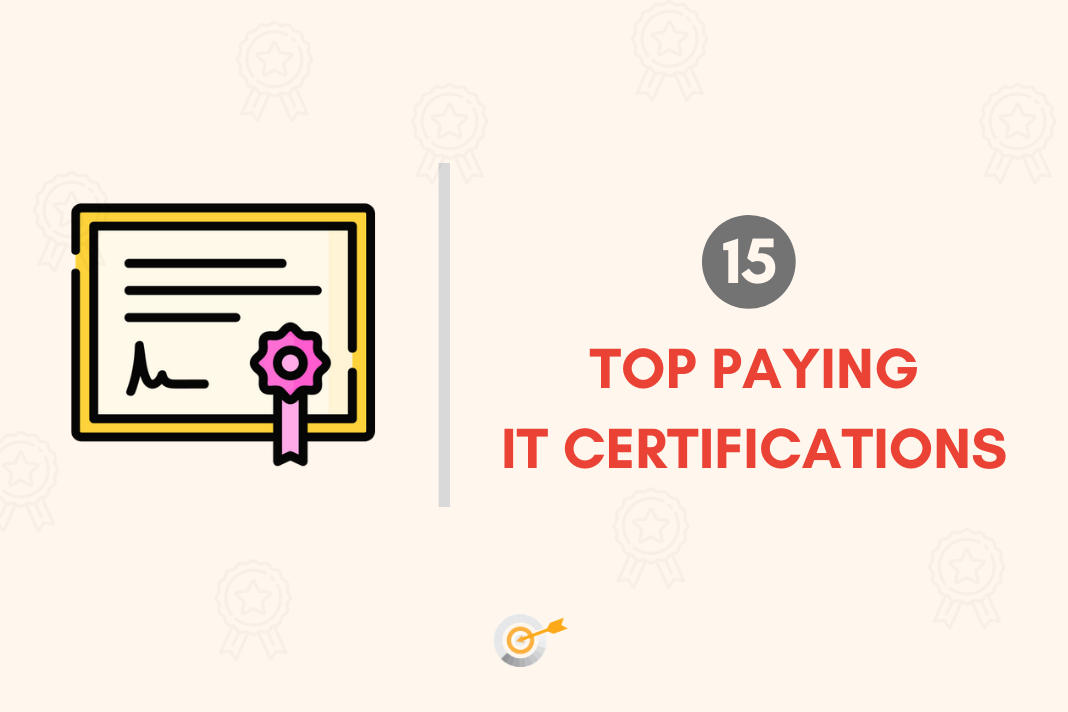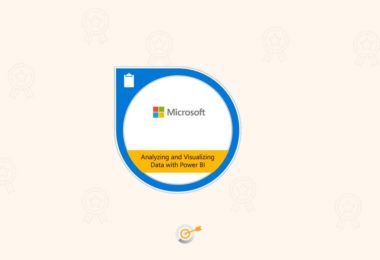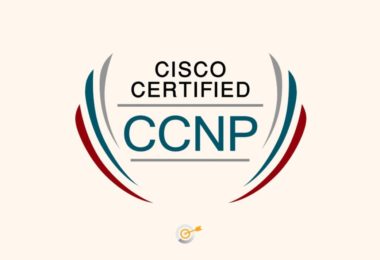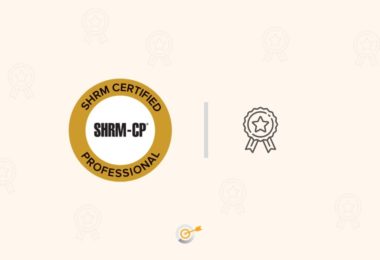
The world is on the brink of the fourth industrial revolution. Each revolution, while it causes severe job losses, creates a world that depends on new ideas and technologies. And that’s what is happening today. The third industrial revolution was the invention of the internet and it created a boom where the economy swelled. The fourth industrial revolution is based on AI/ML, data processing, and virtualization, among others.
This technological disruption has demanded that organizations adapt quickly to the changing requirements. This meant that they had to rely on technology while reducing costs without compromising on quality. Cloud, Data Virtualization, AI-driven technology, Big data are all part of the same technological disruptions. With a rush to adapt technology comes demand for professionals skilled in that technology. As McKinsey reports, professionals for AI/ML, Data processing, Cloud computing and other such activities are in high demand because the supply is low.
So, for any professionals, these would be the best certifications for jobs because these would be the top paying IT certifications. Let us take a look at the top 15 certifications that show a lot of promise this year
Top Paying IT Certifications:
- Google Certified Professional Cloud Architect — $175,761
- AWS Certified Solutions Architect – Associate — $149,446
- CISM – Certified Information Security Manager — $148,622
- CRISC – Certified in Risk and Information Systems Control — $146,480
- PMP® – Project Management Professional — $143,493
- CISSP – Certified Information Systems Security Professional — $141,452
- CISA – Certified Information Systems Auditor — $132,278
- AWS Certified Cloud Practitioner — $131,465
- VCP6-DCV: VMware Certified Professional 6 – Data Center Virtualization — $130,226
- ITIL® Foundation — $129,402
- Microsoft Certified: Azure Fundamentals — $126,653
- Microsoft Certified: Azure Administrator Associate — $125,993
- CCA-N: Citrix Certified Associate – Networking — $125,264
- CCNP Routing and Switching — $119,178
- CCP-V: Citrix Certified Professional – Virtualization — $117,069
1. Google Certified Professional Cloud Architect
GCP Cloud architect has always managed to remain at the top of the highest paid certifications for years in a row. This certification allows professionals to get trained in the principles of cloud architecture. It validates their experience in designing, implementing, managing, troubleshooting, and scaling reliable cloud infrastructure for the organizations(1).
Cloud skills are extremely relevant for organizations today because it improves the data processing capabilities while reducing the cost of infrastructure and other capital investment. IT companies are struggling to fill the gaps for running a successful cloud infrastructure. In fact, cloud is in such demand that the average pay that companies are willing to pay employees is upwards of $150000 for a relevant certification. The best part is that these professionals constitute a small percentage of the IT world – and a smaller percentage of the highest-paid certifications.
Take the next steps
View more details and recommended courses for this certification ›
2. AWS Certified Solutions Architect – Associate
AWS was the pioneer in providing cloud solutions certifications to professionals. It is so popular that about 3 out of 4 of all the professionals employed in cloud systems have this certification. About 28% of all professionals had both GCP cloud architect and AWS solutions architect certifications. AWS validates a professional’s ability to design and deploy scalable and reliable cloud systems. It is ideal for those who reference architecture and build cloud systems that organizations can rely on.
AWS recommends a year of professional experience. Previously AWS had eligibility criteria that required professionals to complete the lower level certification before attempting the higher level ones. However, it had since removed that requirement. This makes professionals eligible to attempt any exam suitable for their position.
Take the next steps
View more details and recommended courses for this certification ›
3. CISM – Certified Information Security Manager
Cybersecurity is an emerging field amidst the reliance on several platforms for data storage and computing. Cybersecurity is validated by the increased cyberattacks. This certification validates a professional’s ability to identify, assess, manage, design, and access an enterprise’s information security.
CISM states that a professional has a high level of technical competence and skills required to manage the organization’s assets. It helps in advancing in one’s career and displays the required skills to take on managerial roles. For that reason, this certification is popular among professionals with about 20 years of experience. Having this certification shows skill in four different areas of cybersecurity.
Take the next steps
View more details and recommended courses for this certification ›
4. CRISC – Certified in Risk and Information Systems Control
Vulnerabilities in technology can cause significant losses to organizations. With the ever-changed compliance requirements, organizations are hard-pressed to mitigate the risk associated with technology. Standard IT professionals don’t have the required ability to assess the risk that is inherent in information systems. Having a certified professional capable of identifying risks in information systems will help the organization identify weaknesses and the risk it poses to the enterprise’s assets.
Certified in Risk and Information Systems Control validates a professional’s ability to identify, evaluate, and assess IT risk and how it affects the entire enterprise. Thus, this certification is leadership-oriented because the information is useful for the managers and other leaders of the organization. To clear this exam, you’ll have to show proficiency in 4 different topic areas.
Take the next steps
View more details and recommended courses for this certification ›
5. PMP – Project Management Professional
Project Management Professional certification, offered by the PMP institute, is industry’s leading certification for project managers. It shows employers and team leaders that a professional has the required experience and knowledge to design, implement, and troubleshoot projects efficiently. In many cases, this certification is the key differentiator in terms of career advancement or climbing the corporate ladder
Because of its demand, PMP has stringent requirements to pass the exam. Not only should the professional possess the knowledge required for this certification, but also have the relevant experience. To put it into perspective, for the training part of this certification, professionals need 35 hours of PMP-related training. Apart from that, professionals also need 7500 hours of relevant training if they don’t have a degree or 4500 hours if they have a relevant degree with training offered in prescribed areas.
With organizations transitioning towards agile, this certification becomes extremely useful
Take the next steps
View more details and recommended courses for this certification ›
6. CISSP – Certified Information Systems Security Professional
This certification, provided by the International Information System Security Certification Consortium, or (ISC)2, validates an individual’s cybersecurity knowledge and experience. Having this certification shows that an individual can effectively design, implement, and manage the enterprise’s cybersecurity program. Because of its importance, it is akin to earning a Master’s degree in IT cybersecurity program.
Because of the importance of cybersecurity for an organization, getting this certification means showing that you have an all-round understanding of the elements of cybersecurity. For that reason, it is not enough if a professional just clears the theoretical component of this certification. He also needs to gain the relevant experience – 5 years of cumulative, paid work – to earn this certification. A candidate is tested on 8 different domains in this certification.
Take the next steps
View more details and recommended courses for this certification ›
7. CISA – Certified Information Systems Auditor
ISACA’s CISA validates that a professional has the required audit, risk, and cybersecurity skills. This certification validates a professional’s ability to determine the risk that any cybersecurity asset poses to the enterprise. A CISA professional ensures that the enterprise’s cybersecurity assets are safe, secure, and run the way the organization requires it. This is one of the oldest certifications, but it is still valid in the IT cybersecurity space. Candidates are tested on topics in five different domains. They are
- Auditing Information Systems
- Governance and Management of IT
- Information Systems Acquisition, Development, and Implementation
- Information Systems Operation, Maintenance, and Service Management
- Protection of Information Assets
Take the next steps
View more details and recommended courses for this certification ›
8. AWS Certified Cloud Practitioner
This basic level certification is a springboard for a lot of other certifications such as AWS solutions architect, devops engineer, sysops administrator, etc. This certification aims to provide an overall understanding of cloud architecture and the services it provides. For that purpose, this certification doesn’t have any experience requirements before clearing although AWS does recommend some.
This certification is usually held by professionals early on in their career so that they can advance with other certifications easily. Having this certification validates a professional’s skills to define basic cloud architectural principles and the key services that are part of the AWS network. A certified professional should be able to define compliance and security aspects of this certification as well.
Take the next steps
View more details and recommended courses for this certification ›
9. VCP6-DCV: VMware Certified Professional 6 – Data Center Virtualization
VCP6-DCV validates the skills needed to build a scalable virtual infrastructure using VMware vSphere 6. Certification candidates will learn how to deploy, consolidate, and administer virtualization technologies such as vSphere High Availability and Distributed Resource Scheduler clusters.
IT professionals with this credential have earned an average of 7.4 career certifications, the highest amount on this list.
Professionals who are new to VMware virtualization technology, will need to attend one course from an authorized training provider, and pass two exams: vSphere 6 Foundations and VCP6-DCV. Professionals who already have a VMware certification, will need to complete one of the following exams: VCP6-DCV (2V0-621) or VCP6-DCV Delta (2V0-621D).
Take the next steps
View more details and recommended courses for this certification ›
10. ITIL® Foundation
ITIL 4 addresses the budding processes and methods that are becoming prevalent in IT such as DevOps, Agile, and Lean frameworks. ITIL Foundation certification introduces ITIL framework and provides ITIL service management through an operational model. This certification validates an employee’s experience and understanding of ITIL framework and how it can be used for IT service management.
This certification is a great way to understand IT lifecycle and is one of the few certifications that focuses on integrating IT assets with the business needs for better performance of those assets.
Take the next steps
View more details and recommended courses for this certification ›
11. Microsoft Certified: Azure Fundamentals
Azure is Microsoft’s cloud computing network. Given its services and the security, it is one of the most widely used, and popular, clouds available on the market. Azure Fundamentals certification provides foundational knowledge about basic cloud services. This certification is offered from a point of view of security, privacy, and compliance.
This certification is for non-IT professionals who deal in cloud products and services but are not involved in any services in building or enhancing cloud services. Product managers, program managers, sales managers, and other such people who need to understand the cloud but don’t need to get deep into the study will benefit a lot from this certification. Microsoft does not require professionals to take this certification before going for other Azure certifications
Take the next steps
View more details and recommended courses for this certification ›
12. Microsoft Certified: Azure Administrator Associate
The Azure Administrator Associate certification validates the skills necessary to be successful in the role of Azure cloud administrator. It is one of Microsoft’s role-based .certifications, which means it aligns directly with sought-after job roles. Azure cloud administrators manage cloud services that span storage, security, and networking.
To achieve this certification, you must pass one exam: AZ-103: Microsoft Azure Administrator. The next step after earning the Azure Administrator Associate credential is to pursue the Microsoft Certified: Azure Developer Associate certification. Both are prerequisites for the Microsoft Certified: Azure DevOps Engineer Expert certification.
Take the next steps
View more details and recommended courses for this certification ›
13. CCA-N: Citrix Certified Associate – Networking
CCA-N covers the basics of a NetScaler implementation, followed by either a specialization in traffic management or the NetScaler Unified Gateway, including integration with XenDesktop and XenApp. It also covers how to troubleshoot issues with NetScaler in these areas. Like all Citrix certifications, the CCA-N certification is valid for three years.
NetScaler is a popular piece of infrastructure and is widely used in Citrix deployments. It is also somewhat complex, requiring a solid foundation in basic networking.
To achieve this certification, you must pass one of two exams: Citrix CCA-N 1Y0-230 or Citrix CCA-N 1Y0-240.
Take the next steps
View more details and recommended courses for this certification ›
14. CCNP Routing and Switching
This professional-level Cisco certification validates that professionals are suitably equipped to design, execute, verify, and troubleshoot LAN and WAN. It is designed so that network engineers and administrators can collaborate with specialists in various fields such as security and voice, wireless, and video solutions. Having this certification means a professional has the skills to integrate all the required tools for such collaboration
As of Feb. 23, 2020, Cisco is launching a new certification framework, with CCNP Enterprise replacing CCNP Routing and Switching. The CCNP Routing and Switching exam will no longer be offered, but those already holding Cisco certifications have an easy-to-follow migration plan to ensure they receive credit for work completed and credentials earned.
For all new CCNP certifications, candidates must pass two exams—a core exam and one concentration exam within the technology area.
Take the next steps
View more details and recommended courses for this certification ›
15. CCP-V: Citrix Certified Professional – Virtualization
CCP-V validates that an IT solution builder has the ability to install, configure and roll out common XenDesktop solutions. The Citrix Certified Associate – Virtualization (CCA-V) certification is a prerequisite for CCP-V. Professionals must pass the exam 1Y0-311 for this certification. This exam gives an overall understanding on topics such as Intermediate FlexCast Management Architecture (FMA), Workspace Environment Management (WEM), Virtual Desktop Agent (VDA), app layering, user environment, etc.
Take the next steps
View more details and recommended courses for this certification ›




